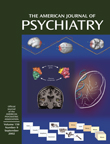Pregnancy Outcomes in Schizophrenia
To the Editor: The title of the intriguing report by Gideon Koren, M.D., F.A.B.M.T., F.R.C.P.C., and colleagues (1) unfortunately implies that the authors directly studied women taking atypical antipsychotics during pregnancy and the drugs’ association with neural tube defects. The authors evaluated the folate status of men and women with schizophrenia who received atypical antipsychotics and found lower serum folate levels, lower dietary folate intake, and a higher risk of obesity in a subgroup of subjects. The authors posited that infants of women with schizophrenia are at a greater risk for neural tube defects because of both maternal obesity and low folate intake. They suggested that women with schizophrenia are a high-risk population and that high-dose folate supplementation should be considered.
However, the number of women in the overall study group (21 of 70) was small. The number of women in the folate dietary intake subgroup (total N=37) was not provided. The ages of the women were not given, although the study group included subjects aged through 73 years. Women’s folate intake and absorption may not be the same across the lifespan.
Disturbances of folate metabolism may be related directly to schizophrenia. Susser et al. (2) found that a folate-sensitive defect in homocysteine metabolism contributes to the development of schizophrenia. Hyperhomocysteinemia in pregnant women increases the risk of neural tube defects; folate treatment may normalize homocysteine metabolism, thus reducing the risk (3). Studies of nutritional status in pregnancy have found that mothers of fetuses affected with neural tube defects have normal or mildly low levels of folate (4). Not all of the known risks for neural tube defects, such as maternal age, birth order, or febrile illness, operate through folate-dependent mechanisms.
The authors’ important findings raise questions regarding whether women with schizophrenia should complete a dietary history of folate intake or have serum folate levels assessed. It is also unclear if they should have B12 levels checked, since deficiency is an independent risk factor for neural tube defects (4).
The authors also noted that the risks of taking atypical antipsychotics, such as weight gain and diabetes, require special consideration for use in women of childbearing age. Interventions to achieve weight reduction in women with schizophrenia warrant study. This report raises numerous questions that compel further evaluation of nutritional variables related to pregnancy outcome for women with schizophrenia. Studies that examine risk for neural tube defects in these women’s infants and whether folate treatment lowers this risk are needed. Gestational risks related to schizophrenia must be differentiated from those of the drugs used to treat it.
1. Koren G, Cohn T, Chitayat D, Kapur B, Remington G, Reid DM, Zipursky RB: Use of atypical antipsychotics during pregnancy and the risk of neural tube defects in infants. Am J Psychiatry 2002; 159:136-137Link, Google Scholar
2. Susser E, Brown AS, Klonowski E, Allen RH, Lindenbaum J: Schizophrenia and impaired homocysteine metabolism: a possible association. Biol Psychiatry 1998; 44:141-143Crossref, Medline, Google Scholar
3. De Marco P, Calevo MG, Moroni A, Arata L, Merello E, Cama A, Finnell RH, Andreussi L, Capra V: Polymorphisms in genes involved in folate metabolism as risk factors for NTDs. Eur J Pediatr Surg 2001; 11(suppl 1):S14-S17Google Scholar
4. Fleming A: The role of folate in the prevention of neural tube defects: human and animal studies. Nutr Rev 2001; 59:S13-S20Google Scholar



